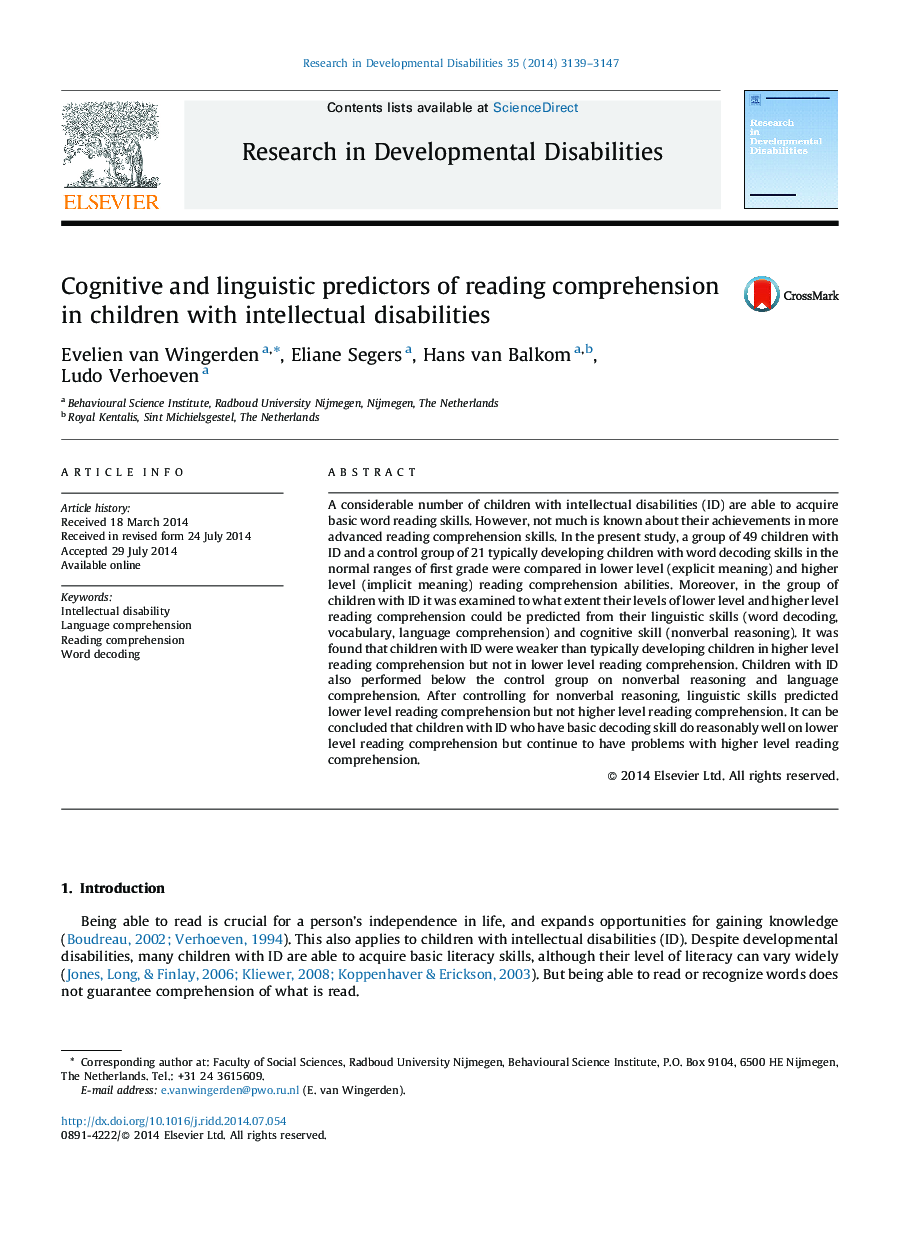| Article ID | Journal | Published Year | Pages | File Type |
|---|---|---|---|---|
| 10317341 | Research in Developmental Disabilities | 2014 | 9 Pages |
Abstract
A considerable number of children with intellectual disabilities (ID) are able to acquire basic word reading skills. However, not much is known about their achievements in more advanced reading comprehension skills. In the present study, a group of 49 children with ID and a control group of 21 typically developing children with word decoding skills in the normal ranges of first grade were compared in lower level (explicit meaning) and higher level (implicit meaning) reading comprehension abilities. Moreover, in the group of children with ID it was examined to what extent their levels of lower level and higher level reading comprehension could be predicted from their linguistic skills (word decoding, vocabulary, language comprehension) and cognitive skill (nonverbal reasoning). It was found that children with ID were weaker than typically developing children in higher level reading comprehension but not in lower level reading comprehension. Children with ID also performed below the control group on nonverbal reasoning and language comprehension. After controlling for nonverbal reasoning, linguistic skills predicted lower level reading comprehension but not higher level reading comprehension. It can be concluded that children with ID who have basic decoding skill do reasonably well on lower level reading comprehension but continue to have problems with higher level reading comprehension.
Related Topics
Life Sciences
Neuroscience
Behavioral Neuroscience
Authors
Evelien van Wingerden, Eliane Segers, Hans van Balkom, Ludo Verhoeven,
